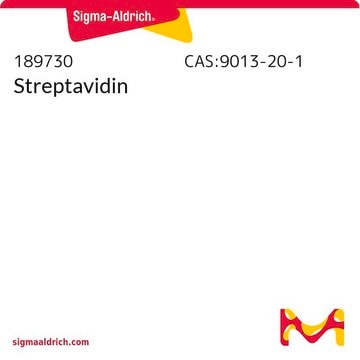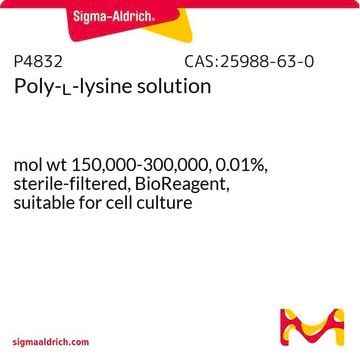OP43L
Anti-p53 (Ab-6) (Pantropic) Mouse mAb (DO-1)
lyophilized, clone DO-1, Calbiochem®
About This Item
Produtos recomendados
fonte biológica
mouse
Nível de qualidade
forma do anticorpo
purified antibody
tipo de produto de anticorpo
primary antibodies
clone
DO-1, monoclonal
forma
lyophilized
não contém
preservative
reatividade de espécies
feline, human
não deve reagir com
mouse, rat
fabricante/nome comercial
Calbiochem®
condição de armazenamento
OK to freeze
Isotipo
IgG2a
Condições de expedição
ambient
temperatura de armazenamento
2-8°C
modificação pós-traducional do alvo
unmodified
Informações sobre genes
human ... TP53(7157)
Descrição geral
Imunogênio
Aplicação
Gel Shift (see comments)
Immunoblotting (0.1 µg/ml; see application references)
Immunocytochemistry (1-2.5 µg/ml; see application references)
Immunoprecipitation (1 µg/ml or use Cat. No. OP43A; see application references)
Paraffin sections (1 µg/ml, pepsin, heat or pressure cooker pre-treatment required; see application references)
Advertência
forma física
Reconstituição
Nota de análise
SK-OV-3 cells or normal skin tissue
A431 cells or breast carcinoma tissue
Outras notas
Greenblatt, M.S., et al. 1994. Cancer Res.54, 4855.
Legros, Y., et al. 1994. Oncogene9, 2071.
Barak, Y., et al. 1993. EMBO J.12, 461.
Kastan, M.B., et al. 1992. Cell71, 587.
Kuerbitz, S.J. 1992. Proc. Natl. Acad. Sci. USA89, 7491.
Lane, D.P. 1992. Nature358, 15.
Vojtesek, B., et al. 1992. J. Immunol. Meth.151, 237.
Kastan, M.B., et al. 1991 Cancer Res.51, 6304.
Informações legais
Não está encontrando o produto certo?
Experimente o nosso Ferramenta de seleção de produtos.
Código de classe de armazenamento
11 - Combustible Solids
Classe de risco de água (WGK)
WGK 1
Certificados de análise (COA)
Busque Certificados de análise (COA) digitando o Número do Lote do produto. Os números de lote e remessa podem ser encontrados no rótulo de um produto após a palavra “Lot” ou “Batch”.
Já possui este produto?
Encontre a documentação dos produtos que você adquiriu recentemente na biblioteca de documentos.
Nossa equipe de cientistas tem experiência em todas as áreas de pesquisa, incluindo Life Sciences, ciência de materiais, síntese química, cromatografia, química analítica e muitas outras.
Entre em contato com a assistência técnica








